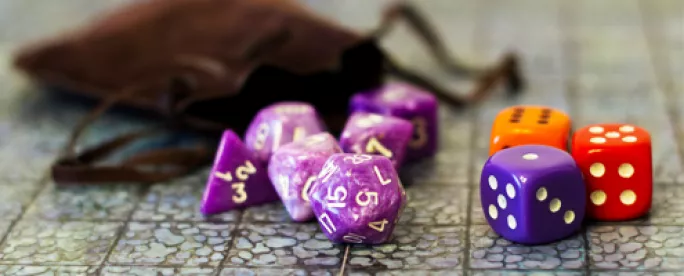In the final blog in our series following last year’s winners of the Let Teachers SHINE awards, we caught up with Jake Daykin, headteacher at Hooe Primary Academy in Plymouth, who won SHINE funding for the Hisabati Maths Role Play Game he created.
The idea for a role play game specifically designed to develop maths skills is one Mr Daykin had been pondering for years and it was the SHINE project that give him the impetus to start working on it.
Mr Daykin believes that in order to improve performance in maths, students need to have well-developed mental arithmetic skills. Unfortunately, pupils often find the practice of these skills boring, repetitive and irrelevant.
Mr Daykin’s solution was to put these skills in a game scenario. Based on the game Dungeons and Dragons, it improves pupils’ mental arithmetic skills, their application of maths knowledge and attitudes towards the subject.
Aimed at nine to 11-year-olds, the game is set in the mythical world of Hisabati (Swahili for maths) in the continent of Zauv (the Hmong word for numbers) and inhabited by monsters, beasts and conjurers. Rather than relying on computers, My Daykin’s game uses paper and dice. This ensures that pupils calculate their own sums - the fast-moving game makes speedy calculation essential.
The rules are simple: players use their maths skills to accumulate points, progress through levels, battle extreme conditions and search for adventure, treasure, magical items and honour.
For example, estimating angle size or calculating nth term forms the basis for lock-picking. Meanwhile, a calendar using Roman numerals and a travelling system requiring accurate use of coordinates are two other examples of how the game gives context and purpose for learning and applying maths skills.
The key is that pupils have a specific reason (success in the game) to learn these skills and apply them accurately. And learn them they do - Mr Daykin says the game has been a great success, so much so that other schools have asked for copies. If you’d like to do the same, you can get more information on TES.





